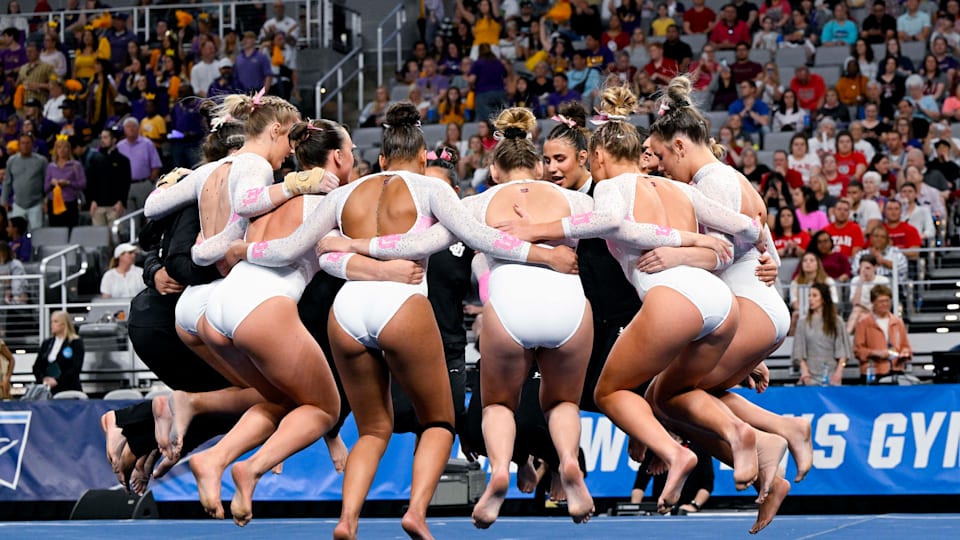Legendary Utah gymnastics coach Greg Marsden on historic season: “Obviously, we’re in a place we’ve never been before.”
Plus, ratings soar for NCAA Championships and a look back at the vault final at the 1996 Olympic Games in Atlanta

Before Olympic champions like Kyla Ross, Madison Kocian, Jade Carey and Sunisa Lee had fans across the country clamoring for more NCAA women’s gymnastics action, Greg Marsden was building a marketing giant as head coach at the University of Utah.
For decades, Marsden packed arenas, got his meets on television and won titles.
Now, retired after 40 years at the helm of the program, Marsden, who pushed for the current national championships format that sees just four teams (instead of six) competing without bye rotations, still follows the sport closely – sometimes offering his opinions on Twitter.
“I think obviously we're in a place we've never been before,” Marsden said during an exclusive interview with Olympics.com. “It's never been more popular and never had more media coverage.”
So, what does this visionary force see for the future of the sport trying to capitalize on its current moment in the sun?
Well, he’d like to see a few changes to the format including a five (or six) up, five count and changes in the rules that allow for a larger separation of scores.
“This is controversial, and I know the men did it a number of years ago, but I really like the five up, five count,” explained Marsden. “To me, when you're able to throw a score out, you really protect the stronger teams. I think five up, five count would give an opportunity for others on a given day to upset some teams with more resources.
As for the scoring changes he’d like to see, Marsden says making the requirements to start from a 10.0 more stringent are needed as the level of NCAA gymnastics has risen in recent years.
“I think we can help a little bit by working on our composition requirements for those very top scores and similar to what they did a few years ago with Vault [when they reduced the Yurchenko full to a 9.95 start value],” said Marsden. “I think they could do a similar kind of thing on the other three events that for the very top scores, make it the require much, much more in terms of composition, still let everybody be competitive at a 9.9 start value or a 9.95… but give some separation for people that are really doing routines with better composition.”
NCAA Women's Gymnastics Championships viewership up 10% over 2022
Speaking of capitalising on the popularity of women's collegiate gymnastics...
ABC and ESPN are working to do just that with their broadcasts of the events soaring to new heights in 2023.
The final, which aired in the U.S. on ABC, was watched by more than 1.02 million fans, an increase of 10% year-over-year, according to ESPN PR on twitter. It's the most watched NCAA women's gymnastics meet on the network ever and the most watch NCAA final since 2007.
Viewership for the semifinals was also up, notching the most eyeballs since 2017.
From the vault…
This week, we take a look back at the women’s vault final from the 1996 Olympic Games in Atlanta. The final was won by Romania’s Simona Amanar, who later became the first woman to perform a Yurchenko two-and-a-half twist. The People’s Republic of China’s Mo Huilan took the silver, followed by Romanian Gina Gogean in third.
